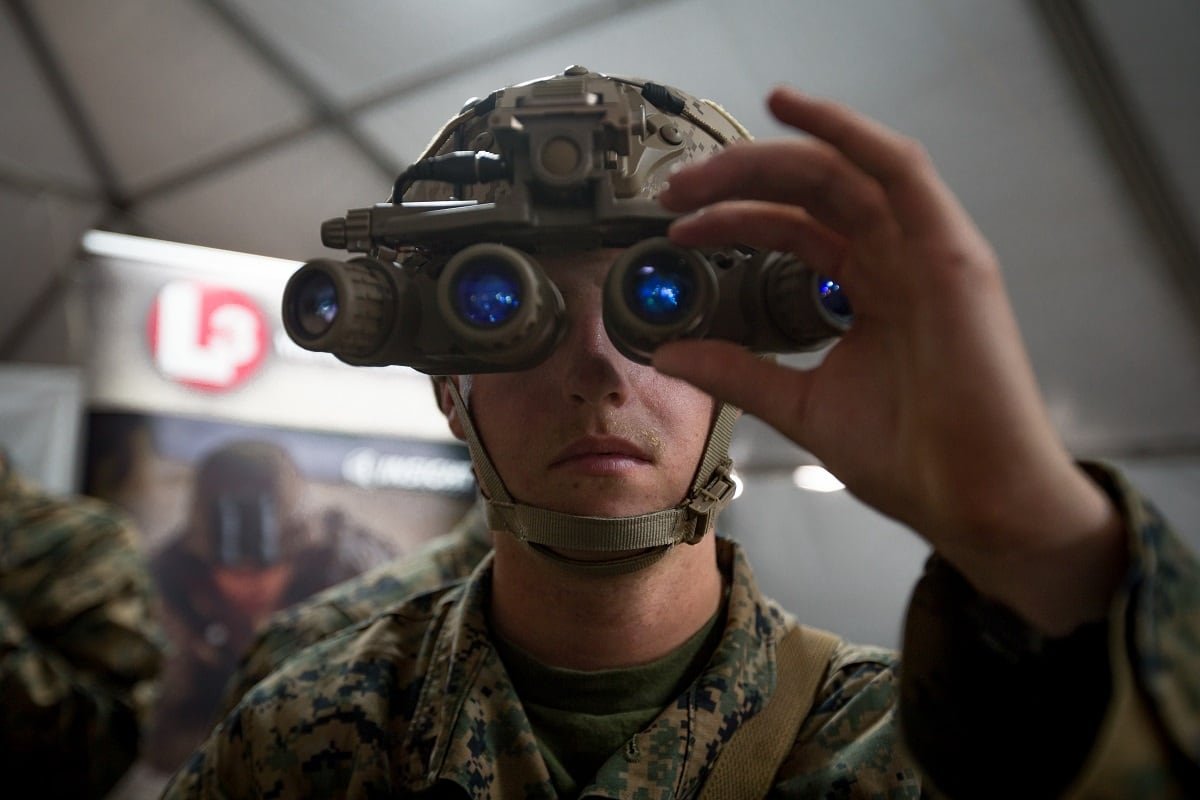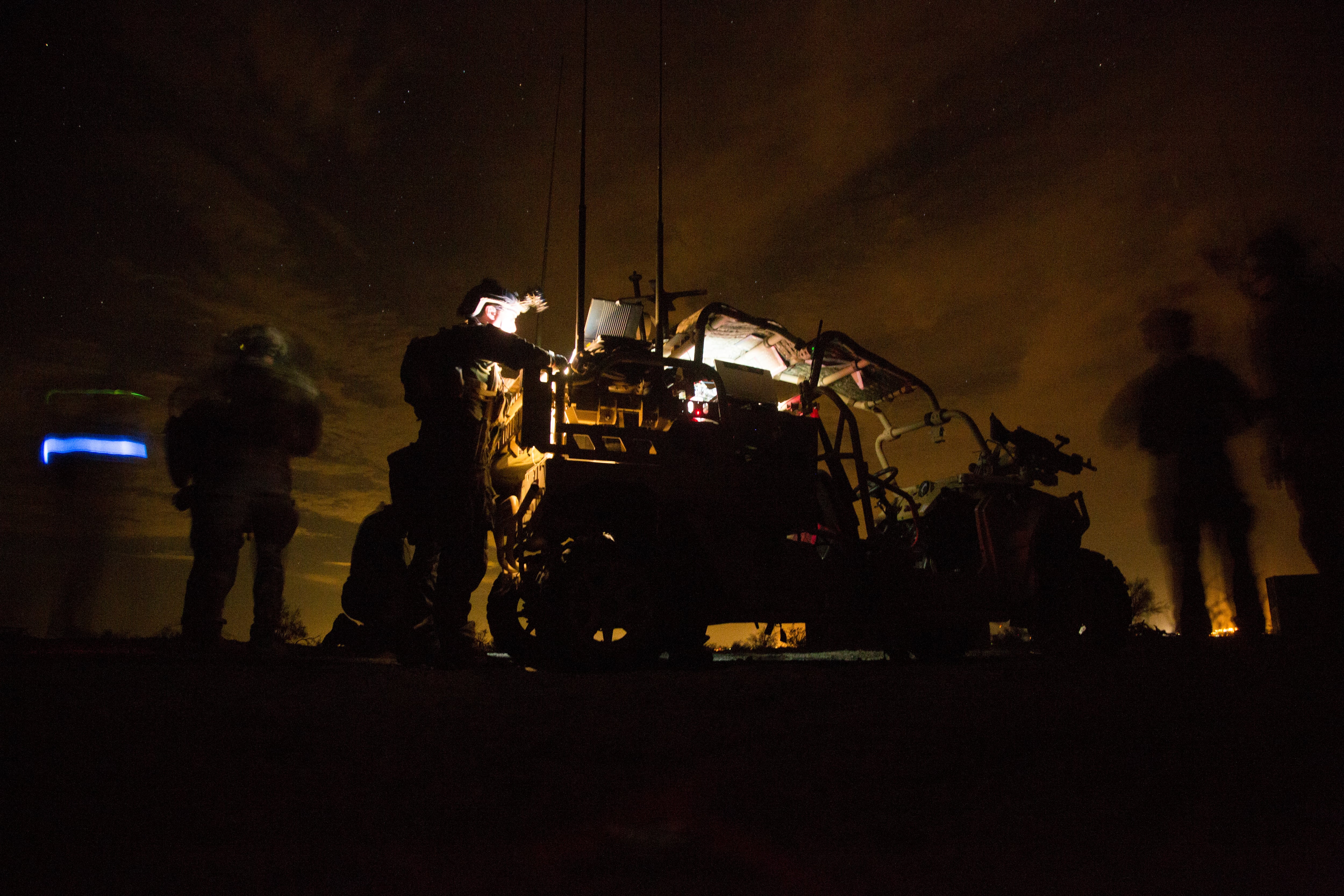With a rising tide of technological advances being pushed across the military, future Marine Corps recruits may be faced with stricter education requirements, and grunts might have to tackle additional job fields.
“The question is: What will an infantryman look like in the future?” Sergeant Major of the Marine Corps Ronald L. Green said Wednesday at the Navy League’s annual Sea-Air-Space exposition near Washington, D.C.
The days of learning one MOS for grunts may be coming to an end as the Corps continues to throw more technology and responsibilities at its most basic building block of combat power: the infantry squad.
“In the future they may have to have multiple MOSs,” Green said. “Because now they have drones in their backpacks.”

The Corps’ largest military occupational specialty is its ground pounders, and currently they only attend one school for 60 days.
“What level of education will an individual have to have coming in the military is the question,” Green said after responding to a question posed by Marine Corps Times about education incentives to retain and recruit a future Marine force. “How educated am I going to have to be to come in, go to the six-month cyber school?”
Retaining and recruiting the future force is a major concern for the Corps as it pluses up its forces by just over 1,000 Marines in the coming year in fields like cyber and information warfare.
The Corps is already amid plans to revolutionize its infantry Marines with new tech to include packable drones and electronic warfare equipment.
And the Marines are pushing more information and cyberwarfare sleuths down to the company level to assist the force in exploiting valuable information that can be gleaned from electronic collections, or to carry out cyberattacks on hostile forces.
Though the Corps’ primary focus is on “readiness, lethality, and defense,” education and military professional development is important to the Marines, Green explained.
To maintain an educated and technologically adept force will require the Corps to modify or rethink various education incentives.
To that end, Green recently visited the Air Force’s Air University located aboard Maxwell Air Force Base in Alabama.
Air University offers enlisted and officers the ability to complete a degree or further professional development. The curriculum focuses on professional military development like air, cyber and space and their application toward U.S. national security.
Green said the purpose of the visit was to take a “look at how the Air Force educates. They have a credentialing program. We are looking at their model.”
The Corps has made other education incentive modifications too.
The Marines have shortened the length of time a first-term Marine needs to wait before applying for tuition assistance.
Normally a first termer needed to have a commander sign off on his or her completion of two years of professional military education. The Corps has rolled that back a bit, and now Marines can start to take college classes after 18 months, Green said.

But, “We can’t have the entire Marine Corps going to college at the same time,” Green said. “Somebody’s got to be ready to fight.”
While education is important to the Corps, junior Marines need time to learn leadership roles early in their career, hence the focus on professional military development for first termers.
The Corps offers sergeants and above with an associate degree a two-year hiatus to attend a degree completion program at various Naval Reserve Officers Training Corps programs.
“That’s not going to be an E-3 going out to do that,” Green said.
Corporals and junior Marines entering their first real leadership roles need time to grow and earn the trust of their Marines.
“They’re following you because they want to,” Green said. “Got to get in their head, their mind, and their spirit, and that takes time to build.”
Shawn Snow is the senior reporter for Marine Corps Times and a Marine Corps veteran.





